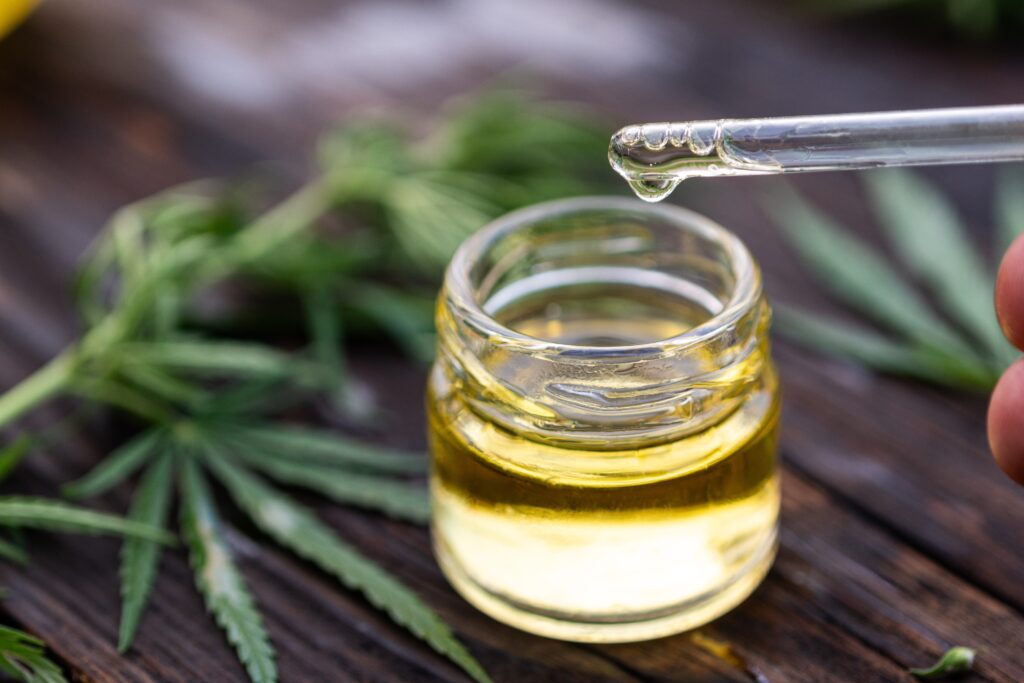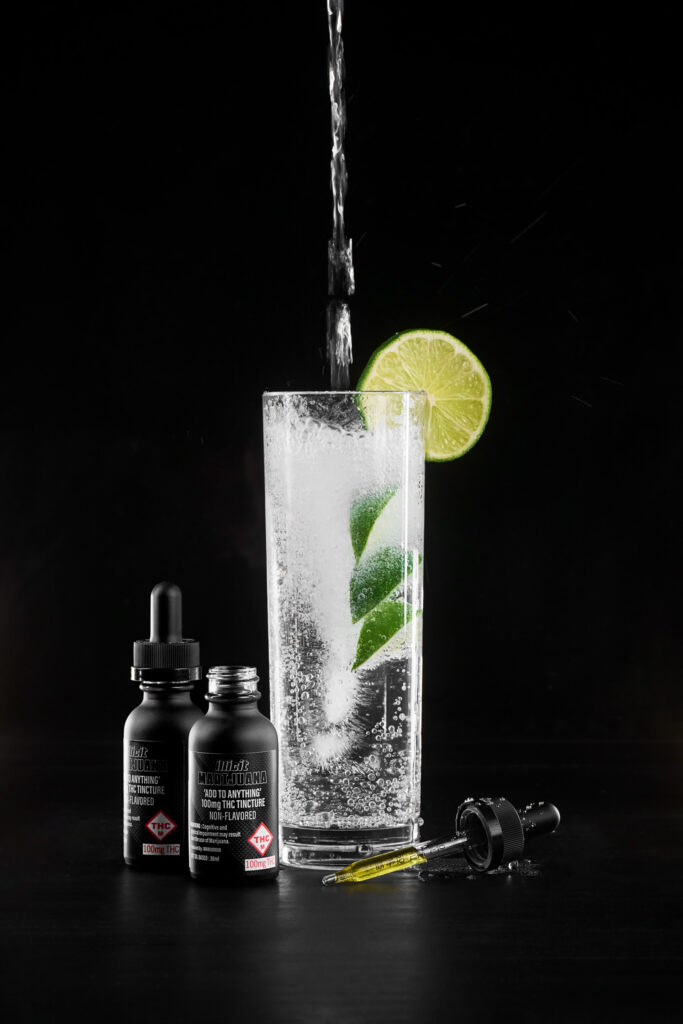Jump to a Section:
- Introduction: THC in the Garden State
- What Exactly Is THC? (And Why It Matters)
- How THC Feels: From Euphoria to Relaxation
- THC vs. CBD (and Why Their Ratio Matters)
- Consumption Methods: How You Take THC Changes Everything
- Smart Dosing for New Users
- Potential Benefits People Seek from THC
- Possible Side Effects & How to Stay Comfortable
- Shopping Tips for Belleville & New Jersey Dispensaries
- FAQs


Introduction: THC in the Garden State
If you’ve heard friends in Belleville talk about “THC,” they’re referring to delta-9-tetrahydrocannabinol, the primary compound in cannabis responsible for the classic “high.” For many adults in New Jersey, THC can mean elevated mood, sensory enhancement, and a relaxed body feel. For others, it’s about potential wellness support—from easing tension after a long day to helping with rest. Because everyone’s endocannabinoid system is unique, how THC affects you will depend on your body, mindset, dose, and environment. This guide breaks down what THC is, how it works, what it feels like, and how to choose and use products wisely.
What Exactly Is THC? (And Why It Matters)
THC is one of many cannabinoids found in the cannabis plant. It binds to receptors in your endocannabinoid system (ECS)—a network involved in mood, perception, appetite, and more. When THC engages these receptors, you may notice shifts in how you feel, focus, and experience your surroundings. Understanding this interaction helps you shop smarter at Belleville dispensaries and set realistic expectations for your session.
Key takeaways:
- THC drives euphoria (the “high”) and can alter time, focus, and sensory perception.
- Your personal response depends on dose, product type, tolerance, setting, and mindset.
- Products list THC potency on labels—use that to guide your choices.
How THC Feels: From Euphoria to Relaxation
First-time users often describe THC as a lift in mood and sensory richness—music can sound fuller, colors more vivid, and jokes more hilarious. Physically, you may feel looser and lighter, sometimes with a warm body calm. For many, THC supports unwinding, socializing, creativity, or sleep prep (depending on product and dose).
Potential sensations:
- Uplifted mood and increased sociability
- Body relaxation or a soothing “melt”
- Enhanced sensory perception (sound, taste, touch)
- Quieting of mental chatter or, conversely, racing thoughts if you overdo it
If you start too high, you might encounter dry mouth, red eyes, dizziness, or anxious thoughts. The good news: with thoughtful dosing and a calm setting, most of these effects are manageable—and temporary.
THC vs. CBD (and Why Their Ratio Matters)
While THC is intoxicating, CBD is non-intoxicating and often described as grounding. Many beginners prefer products blending the two (for example, balanced ratios) to soften THC’s intensity. If your goal is relaxation without a strong head high, CBD can act like a seatbelt—tempering the ride and promoting composure.
Quick pointers:
- Higher THC, lower CBD → more pronounced euphoria
- Balanced THC:CBD → smoother, more manageable experience
- CBD-forward → minimal high, more body calm and clarity
Consumption Methods: How You Take THC Changes Everything
How fast THC “kicks in,” how long it lasts, and how it feels depend on the delivery method:
Inhalation (Flower, Pre-Rolls, Vapes)
- Onset: Often minutes
- Duration: Typically a few hours
- Why choose it: Quick feedback loop—easy to pause when you reach your sweet spot
Edibles (Gummies, Chocolates, Beverages)
- Onset: Delayed; effects build gradually
- Duration: Can last much longer than inhalation
- Why choose it: Discreet, steady experience—great for sustained relief or a movie night
- Note: Because onset is slower, patience is key. Avoid “stacking” doses too soon.
Tinctures & Oils (Sublingual)
- Onset: Sooner than edibles for many users
- Duration: Moderate
- Why choose it: Precise measuring in milliliters; easier to personalize dosage
Concentrates (Dabs, Live Resin, Rosin)
- Onset: Rapid
- Duration: Varies—often potent
- Why choose it: Experienced consumers seeking robust effects and flavor
Topicals (Balms, Lotions)
- Onset: Localized and gradual
- Duration: Varies
- Why choose it: Non-intoxicating when used externally; targeted body care
Smart Dosing for New Users
If you’re new, think “start low, go slow.” Your goal is to find a minimum effective dose—the least amount that delivers your desired effect without discomfort. For inhalation, begin with one small inhale, then wait and see. With edibles and tinctures, take a modest serving, then wait for the full effect to unfold before considering more. Keep a simple note on what you took, when you felt it, and how you felt—this journal becomes your personalized dosing roadmap.
Pro tip for Belleville shoppers: If product labels feel confusing, ask your budtender to translate potency, serving sizes, and suggested pacing for first-timers.


Potential Benefits People Seek from THC
Adults explore THC for a range of lifestyle and wellness reasons. Some are looking to unwind after work, spark creativity, reduce tension, or support rest. Others prefer THC for social occasions, whereas many stick to evening routines to promote wind-down. Whatever your goal, align method, dose, and timing with the outcome you want.
Possible Side Effects & How to Stay Comfortable
Even with a thoughtful plan, you might occasionally feel too high. If that happens:
- Hydrate and grab a light snack
Change the vibe—dim lights, calmer music, and steady breathing
Distract yourself gently—comedy, nature videos, or a cozy blanket - Wait it out—time helps; effects taper naturally
Listen to your body. If you’re pregnant, nursing, taking certain medications, or managing a medical condition, consult a healthcare professional before using THC.
Labels, Potency, and Terpenes: Reading What Matters
New Jersey products include testing info and potency on labels. Beyond THC percentage, pay attention to terpenes—aromatic compounds that influence flavor and feel. Citrus-leaning terpenes may feel brighter, while earthy or herbal profiles can feel heavier. Over time, you’ll learn which terpene notes align with your preferences and goals.
Shopping Tips for Belleville & New Jersey Dispensaries
- State-Licensed Stores Only: Choose licensed New Jersey dispensaries for quality controls and transparent labeling.
- Describe Your Goal: Tell your budtender whether you want daytime focus, social ease, creative lift, or evening relaxation.
- Match Form to Function: Need quick relief? Consider inhalation. Prefer long-lasting calm? Try a measured edible or tincture.
- Mind Your Plans: Avoid driving or scheduling important tasks after consuming THC.
- Store Safely: Keep products sealed, cool, and out of reach of children and pets.
Putting It All Together
THC can be both fun and functional when you approach it with clarity: choose the right product, dose thoughtfully, and set the scene for success. Whether you’re exploring Belleville’s local options or shopping elsewhere in New Jersey, the smartest path is the one tailored to your body and your goals. With patience and curiosity, you’ll discover what works—and enjoy the ride.
FAQs
Is THC legal in New Jersey?
Adult-use cannabis is legal for adults 21+. Always follow New Jersey’s state and local rules and consume responsibly.
Will THC make me feel anxious?
It can if you take too much or are in a stressful environment. Start with a low dose, choose a calm setting, and consider products with balanced THC:CBD.
How long do edibles last compared to smoking?
Edibles generally take longer to start and often last longer than inhalation. Plan your schedule accordingly.
What’s the difference between THC and CBD?
THC is intoxicating; CBD is non-intoxicating and can moderate THC’s intensity. Many beginners prefer balanced ratios.
Can I use THC for sleep?
Some people take THC in the evening to support wind-down. If you’re sensitive, choose gentle doses and evaluate how you feel the next day.
What are terpenes, and do they matter?
Terpenes shape aroma and may influence the character of your experience (bright, calm, heavy). Tracking terpene profiles can help you shop smarter.
How do I avoid getting “too high”?
Set a low starting dose, wait patiently, hydrate, and keep your environment relaxing. If you overshoot, give it time—effects fade.
Can I mix THC with alcohol?
If you’re new, avoid mixing. Combining substances can intensify side effects and make it harder to gauge your personal response.
